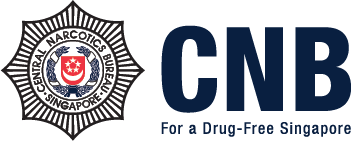Understanding "medical Cannabis"
Singapore clarifies that raw cannabis isn’t medically validated or safe; only tightly regulated cannabinoid pharmaceuticals (like CBD-based treatments) may be used, and only under strict assessment and approval.
Myth: Cannabis is a "medicine"
As at May 2019, at least 33 U.S. states out of 50 states have legalised cannabis for medical use. However, are all the so-called “medical cannabis” products really “medical”? Check the graphics out and decide for yourself…

Below is text extracted from the graphics above
“I’ve heard that cannabis is a medicine and allowed in some countries, is this true?”
1. Insufficient evidence to prove the effectiveness of cannabis use for most medical conditions
There is some evidence to support the use of cannabinoids* for certain limited conditions, but insufficient evidence to support the use of cannabinoids for most conditions.¹
*Cannabinoids are chemical compounds found in the cannabis plant.
2. The U.S. Food and Drug Administration (FDA) has only approved one CBD-based pharmaceutical for the treatment of specific medical conditions2
Epidiolex, which contains purified cannabidiol (CBD)* is the only CBD-based pharmaceutical approved by the FDA.3
It is only approved for treatment of specific rare, severe forms of epilepsy in patients two years of age and older.
*CBD is the chemical substance in the cannabis plant that does not cause intoxication or the “high” that comes from tetrahydrocannabinol (THC).
THC is the most psychoactive chemical substance in cannabis that causes users to feel “high”. It also has adverse health impacts and is listed as a Class A controlled drug in the First Schedule of the Misuse of Drugs Act.
3. Many non-FDA-approved products are sold as “medical cannabis” and there is a lack of control over its access
Several “medical cannabis” products are not FDA-approved
CBD products could contain THC despite claims on product labels stating that it is THC-free.
FDA conducted tests on several CBD products and many were found to not contain the levels of CBD they claimed to contain. FDA has also warned consumers that these products were not intended for the diagnosis, cure, mitigation, treatment, or prevention of any disease.
(Image of the “U.S. Food & Drug Administration” logo with the caption “Warning letters and test results for cannabidiol-related products”.4)
Many unapproved “medical cannabis” products are sold in various forms to drive profits and often contain uncertain dosages and formulations. These are not cannabinoid pharmaceuticals.
Examples shown:
Raw cannabis6
Edibles7
CBD oil8
Lotion9
The most common form is marijuana buds which are smoked - smoking is not supported by most medical bodies as an acceptable form of medical application.1
Products containing unprocessed or raw cannabis are different from pharmaceutical products containing cannabinoids.5
To date, there are no studies which have validated the claims of unprocessed or raw cannabis being able to treat medical conditions.5
Low barriers of access to “medical cannabis”
(Image of Forbes article titled – “I got a marijuana prescription and pot in minutes without leaving my couch”)
With the on-demand weed delivery marketplace, users can be easily prescribed “medical cannabis” even via video consultations with doctors and have the products delivered to their place timely.⁶
Singapore’s stance on “medical cannabis”
The Ministry of Home Affairs and the Ministry of Health issued a joint statement in Feb 2019 clarifying the Singapore Government’s position on the use of pharmaceutical products containing cannabinoids.5
Key points include:
Evidence shows that raw cannabis is harmful and addictive and there are no studies validating its use to treat medical conditions.
Cannabinoid pharmaceuticals that may have medical value need to be reviewed by HSA.
There is avenue for safe and controlled access to evidence-based medical treatment options.
Sources
[1] Ministry of Home Affairs (2016). A literature review on medical cannabis. https://www.mha.gov.sg/docs/default-source/speeches/a-literature-review-on-medical-cannabis.pdf
[2] NBC News (2018). FDA committee recommends cannabis-based drug. https://www.nbcnews.com/health/health-news/fda-committee-recommends-first-cbd-oil-product-n867511?icid=related
[3] US Food and Drug Administration (2018). FDA approves first drug comprised of an active ingredient derived from marijuana to treat rare, severe forms of epilepsy. https://www.fda.gov/news-events/press-announcements/fda-approves-first-drug-comprised-active-ingredient-derived-marijuana-treat-rare-severe-forms
[4] US Food and Drug Administration (2019). Warning letters and test results for cannabidiol-related products. https://www.fda.gov/news-events/public-health-focus/warning-letters-and-test-results-cannabidiol-related-products
[5] Ministry of Home Affairs (2019). The Singapore Government’s position on the use of pharmaceutical products containing cannabinoids. https://www.mha.gov.sg/newsroom/press-release/news/the-singapore-government-position-on-the-use-of-pharmaceutical-products-containing-cannabinoids
[6] Forbes (2015). I got a marijuana prescription and pot in minutes without leaving my couch. https://www.forbes.com/sites/ryanmac/2015/06/30/eaze-doctor-online-prescription-marijuana-pizza-couch/#210506f189ba
[7] The Denver Post (2017). Will they or won’t they? Larimer County to decide on recreational pot edibles. https://www.denverpost.com/2017/06/16/larimer-county-recreational-pot-edibles/
[8] https://healthyhempoil.com/shop/herbal-renewals/best-herbal-remedy/
[9] https://curaleafhemp.com/collections/relieve/products/cbd-lotion?variant=17575732510779
